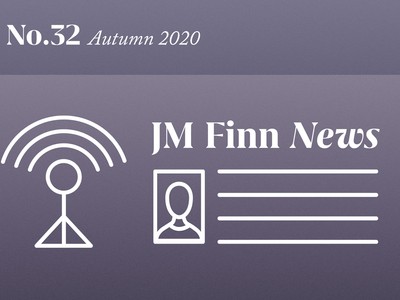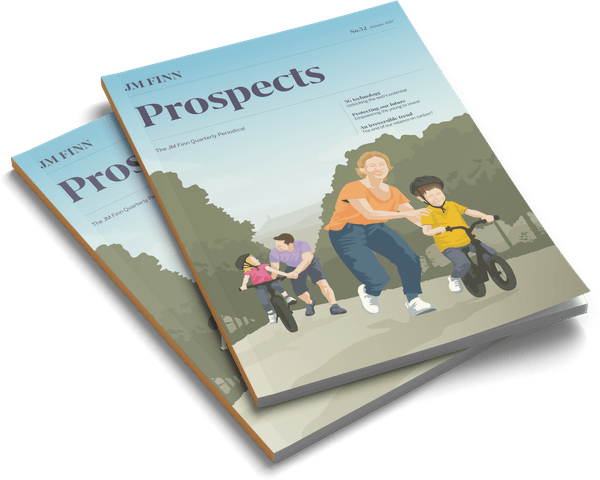Our asset allocation committee is one example of this, via their monthly output showcasing their views on a global basis; this is then complemented by a sectoral view from the stock selection committee. The combination of these top down and bottom up opinions is an important resource for our investment managers to validate their own investment theses or to generate new investment ideas.
These committees, which consists of members of our research team and a number of investment managers, aim to provide a view that seems most suitable in the current climate. The output of the monthly meetings remains a suggested stance and it is important to note, that the views expressed are those of the committees and may not necessarily be those of your individual investment manager.
Here we present a snapshot of the current views.
SECTOR VIEWS
|
Materials |
Covid-19 has impacted commodity prices. Evidence shows Chinese demand coming back and there are early signs of stabilisation in commodity markets. Majors with strongest balance sheets should continue to pay dividends. |
|
Consumer |
We like the sector for its defensive attributes and high quality businesses and it has shown its resilience over the last few months. However, valuations do not look that compelling and so retain a neutral stance. |
|
Consumer |
There are many high quality companies and we favour those with structural and disruptive growth characteristics with an online presence. We have upgraded based on these businesses emerging from the current recession stronger, with many new and retained customers. |
|
Financials |
This includes a broad range of stocks which are generally geared to investment markets. Valuations not at a level to turn more positive. |
|
Financials |
High levels of regulation, falling interest rates globally and recessionary conditions makes us reluctant to turn positive yet. Longer term structural headwinds as well as no dividend support for next 12 months. We think balance sheets generally are solid enough to endure the current crisis. |
|
Financials |
Whilst acknowledging the structural difficulties on the high street and concerns over liquidity in open ended vehicles, we do see value in some areas. We would rather see more visibility on timeline for lockdowns before becoming positive again. |
|
Financials |
We see these companies needing to hold more regulatory capital post Covid-19 and with their geared balance sheets we are concerned equity investors will not see value creation for sometime. |
|
Financials |
Global real estate may offer better value. Caution on bond proxy status and Covid-19 impact. |
|
Health Care |
Growth and defensive attributes and global demographic tailwind. Distinguish between pharma/healthcare/biotech sub sectors. Remains a key theme for medium term, reinforced by current crisis. |
|
Industrials |
We had hoped for a full rebound in manufacturing cycle however coronovirus will delay this. Focus on high quality defensive names for now and hold through until certainty returns. |
|
Energy |
We recently downgraded as the dividend support has now been removed. The sector remains under pressure as supply/demand dynamics look poor for capital growth or capex expansion. Coronovirus impacting the oil price and further headwinds from a sustainability perspective. |
|
Information Technology |
We are positive but be selective and wait for market weakness to add to the quality names. |
|
Communication Services |
Recently restructured sector - be selective and focus on quality stocks and avoid traditional telcos. |
|
Utilities |
Sector has seen some safe haven support however is not immune from the slowdown as business customers suffer. |
UK EQUITIES
|
UK |
We acknowledge Brexit risk which could still yet rear its head. There is also a risk that a Brexit inspired run on the pound could make overseas investment more attractive. UK equities appear keenly priced on a relative earnings basis and we watch for signs of a cyclical rally in financials, banks and oils. |
INTERNATIONAL EQUITIES
|
North America |
US indices have been driven by the FAANGs. Whilst some are worried of over-valuation there is probably more upside and potential for the non-tech universe to catch up. The US election is difficult to call but we are less worried about Biden’s threatened tax hikes than others are. We think the Chinese would probably prefer Trump; he thinks soybean exports are strategic, the Chinese think military expansion into the South China sea is strategic; and that is what Trump’s sowing of discord amongst his allies has allowed. |
|
|
Europe |
We upgraded Europe to neutral following their EUR 750bn support package. Public pressure is driving corporates to become more focussed on governance and responsibility, which in turn could increase the cost of capital and lower returns. If Chinese stimulus is more focussed on domestic consumer demand, rather than infrastructure spending, this could dent expectations for an export led recovery. |
|
|
Japan |
Japan has been out of the trade war news and the Yen has started performing in mild safe harbour mode as the pandemic has dragged on. However, we are still wary of much needed corporate reform delivering on its promises. |
|
|
Asia Pacific |
China is not imploding under a debt burden as many once feared. Instead, leverage is supporting the economy in a co-ordinated way which we expect to be supportive for Asia Pacific equities. China was first into the Covid-19 pandemic and should be first out in a way that leads the region. Recent data has been encouraging for the region and we expect prospects to improve further. |
|
|
Emerging Markets |
Extreme USD strength is obviously no longer a concern and a gradual improvement in commodity prices, linked to a Chinese infrastructure stimulus, could help those emerging markets more sensitive to commodity exports. Argentinian contagion is a worry and raises the risk premium and tensions between India and China have heightened. We should monitor this situation carefully. Trump broadening out his trade war agenda to South America would not help investor sentiment either. |
BONDS
|
Conventional |
We have reached the stage with conventional gilts that they are now being described as return free risk. Ten year gilt yields are now at 0.30%. We don’t see ten year rates being in negative territory and if interest rates climb from these levels there is greater downside risk. |
|
|
Corporate |
Given our overweight equity position we would prefer to be underweight corporate bonds. There is a possibility that corporate spreads could reduce further but we think Linkers provide a more favourable risk/return trade-off as corporate bonds will likely be more sensitive, initially, to interest rate hikes. |
|
|
Index Linked |
Linkers are a good hedge against the deflation-sayers. It is not beyond the realms of possibility that the pandemic induces strong money creation which could drive inflation above current expectations. Be wary of buying maturities beyond 2035 due to RPI methodology change risk. |
CASH
|
Cash |
We are underweight cash because it does not produce a yield and there is sufficient opportunity elsewhere. |
PROPERTY
|
Property |
We weigh up many factors including Brexit risk, valuation and weak interest rates helping demand. Overall the commercial slant of most listed property assets leads us to dislike the sector for the time being. |
ALTERNATIVES
|
Alternatives |
We have been favourable towards gold and infrastructure within this sector and remain so. |



